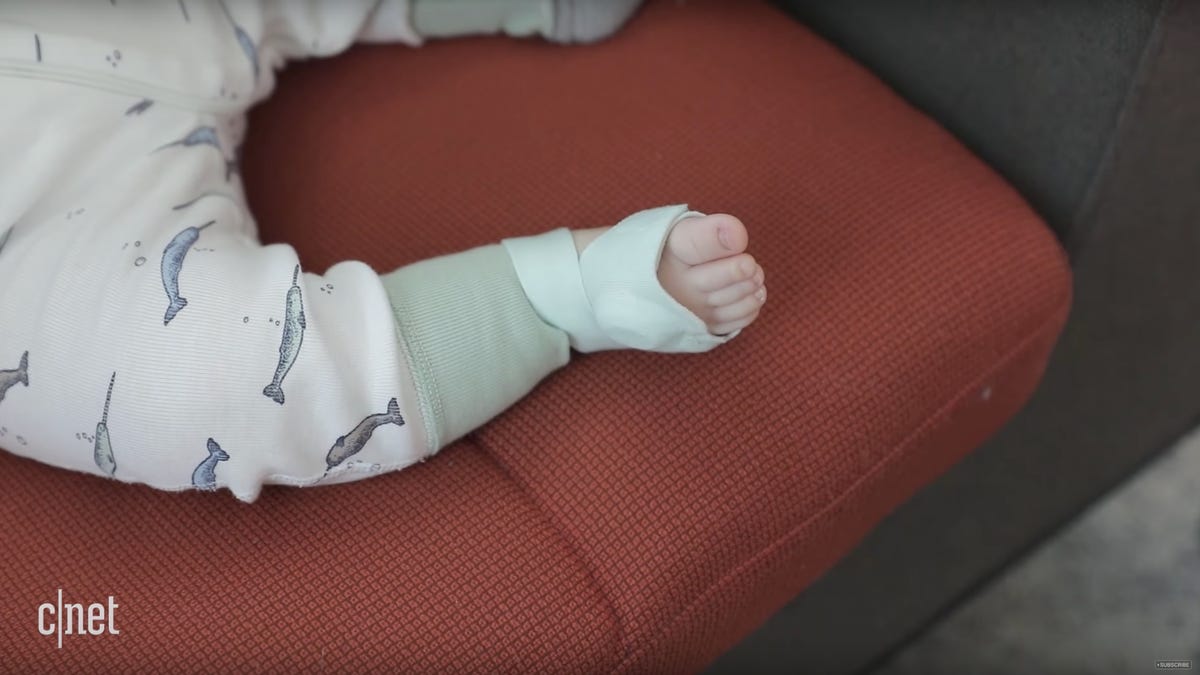Researchers warn parents about using baby monitors to prevent SIDS
Researchers found inaccurate results in two consumer models, according to a new study.

Owlet Smart Sock connects to your phone for a detailed read of your baby's vitals.
Parents are being cautioned not to rely on consumer baby monitors to prevent Sudden Infant Death Syndrome (SIDS) after two popular models scored poorly in testing.
Researchers tested the Owlet Smart Sock 2 and the Baby Vida, both of which use pulse oximetry to monitor a baby's heart rate and blood oxygen levels, according to a study published this week in the Journal of the American Medical Association. Both monitors promise to send an alert to parents' smartphones if vital signs stray into dangerous territory.
Read: Our favorite baby food delivery subscription services in 2019
Researchers found that the Owlet Smart Sock 2 would sometimes sound an alert warning of low oxygen levels when they were actually in normal range. The other monitor tested, the Baby Vida, didn't perform either, reporting oxygen levels as normal when they were actually dangerously low.
Dr. Christopher P. Bonafide, a pediatrician and researcher of the study, tested the monitors on 30 infants ages newborn to 6 months old who were hospitalized at Children's Hospital of Philadelphia (CHOP) Research Institute. Bonafide told Good Morning America that he was "pretty shocked" by the results.
"Parents are buying these not just to tell them when things are OK, but to tell them when something is wrong," Bonafide said. "What we're showing is how these monitors are failing them to some degree."
Kurt Workman, co-founder and CEO of Owlet, defended the accuracy and performance of its Smart Sock 2, pointing out that the product is intended for "in-home use, with healthy babies while they sleep, to provide parents with information about their child's well-being.
"As the CHOP study states, one of the limitations of their methodology was not using arterial blood gas measurements," Workman said in a statement that also pointed out shortcomings in the study. "Owlet's sensor accuracy was tested against arterial blood gas measurements in December 2017 and the sensor performed well within industry and regulatory standards for pulse oximetry."
Representatives for Baby Vida couldn't be reached for comment.
The Smartest Stuff: Innovators are thinking up new ways to make you, and the things around you, smarter.
Special Reports: CNET's in-depth features in one place.

